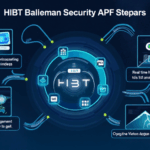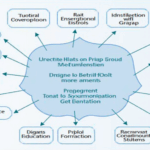Introduction
In recent years, the financial landscape in Vietnam has witnessed significant changes, driven by the rapid adoption of digital technologies. According to the Vietnam General Statistics Office, over 70% of the Vietnamese population now has access to the internet, resulting in a growing interest in digital financial services. Given that many individuals in Vietnam lack traditional credit histories, there has been a pressing need for innovative solutions to credit scoring. This is where Vietnam blockchain credit scoring comes into play, providing a transparent, reliable, and efficient way to evaluate creditworthiness.
Understanding Blockchain Technology in Credit Scoring
Blockchain technology operates as a decentralized ledger, permitting secure and transparent transactions. Unlike traditional credit scoring systems – which rely heavily on centralized data and can manipulate outcomes – Vietnamese blockchain credit scoring ensures that data is immutable and can be accessed by relevant parties without fear of tampering.
Benefits of Blockchain for Credit Scoring
- Enhanced Transparency: Blockchain allows all transactions to be recorded in a public ledger. Users can track their credit scores and the data contributing to them.
- Improved Accessibility: Individuals with no prior credit history can establish credit scores through decentralized finance (DeFi) platforms.
- Cost Efficiency: By removing middlemen, blockchain reduces the cost of obtaining credit, benefiting both lenders and borrowers.
The Evolution of Credit Scoring in Vietnam
Historically, credit scoring in Vietnam has faced various challenges, including limited data access and reliance on traditional banking systems. According to a 2022 report by the World Bank, nearly 70% of Vietnamese citizens had no credit history. With the advent of blockchain technology, there are now substantial advancements in how credit is assessed.

Key Features of Blockchain Credit Scoring
- Smart Contracts: These self-executing contracts enable automated credit evaluations, reducing the need for human intervention.
- Data Privacy: Users maintain control over their credit data, deciding who has access to it.
- Real-time Updates: Credit scores can be updated in real-time, reflecting the most current financial behavior of individuals.
Challenges of Implementing Blockchain Credit Scoring
While the potential for blockchain in credit scoring appears promising, certain challenges also loom. These include:
Regulatory Compliance
- Adapting existing laws to encompass blockchain technology will require collaboration between regulators and fintech companies.
- Ensuring user data protection and preventing fraud must be prioritized to maintain public trust.
Technological Barriers
- Deployment of blockchain systems necessitates robust infrastructure, which may not be available in all regions of Vietnam.
- Education about blockchain technology is essential for both consumers and lenders to ensure widespread adoption.
Real-World Applications in Vietnam
Several initiatives are already embracing blockchain technology for credit scoring:
Case Study: VETRI
- VETRI is a blockchain-enabled platform focusing on credit scoring, facilitating loans for individuals without prior credit histories.
- The platform uses a trust score algorithm that incorporates alternative data points, such as utility payments and microfinance records.
Statistics on User Growth
According to the Vietnam Fintech Report 2023, blockchain adoption in financial services has soared by over 45% in the last year alone, indicating a growing trust in these innovative solutions.
The Future of Blockchain Credit Scoring in Vietnam
As Vietnam continues to integrate blockchain technology into its credit scoring processes, several trends are expected to emerge:
Increased Financial Inclusion
- With over 15 million people potentially gaining access to credit, blockchain credit scoring can drive economic growth.
- As alternative data sources become more prevalent, microloans may become a primary source of financing for small businesses.
Adoption of Central Bank Digital Currencies (CBDC)
- The introduction of the digital dong could change the payment landscape and enhance credit scoring efficiencies.
- Blockchain-based money transfers may lower transaction times and costs, further enhancing credit availability.
Conclusion
Vietnam is at the forefront of adopting blockchain technology to innovate credit scoring mechanisms, enhancing transparency, accessibility, and efficiency. As the sector evolves, stakeholders must remain committed to addressing regulatory and technological challenges. By leveraging the potential of Vietnam blockchain credit scoring, the nation can pave the way towards financial inclusion for millions, transforming the financial landscape one credit score at a time. Trust in this system is key; consumers, lenders, and regulators must work together to ensure a well-functioning, transparent marketplace.
For more information on navigating the complex world of cryptocurrency and blockchain technology, visit officialcryptonews.




